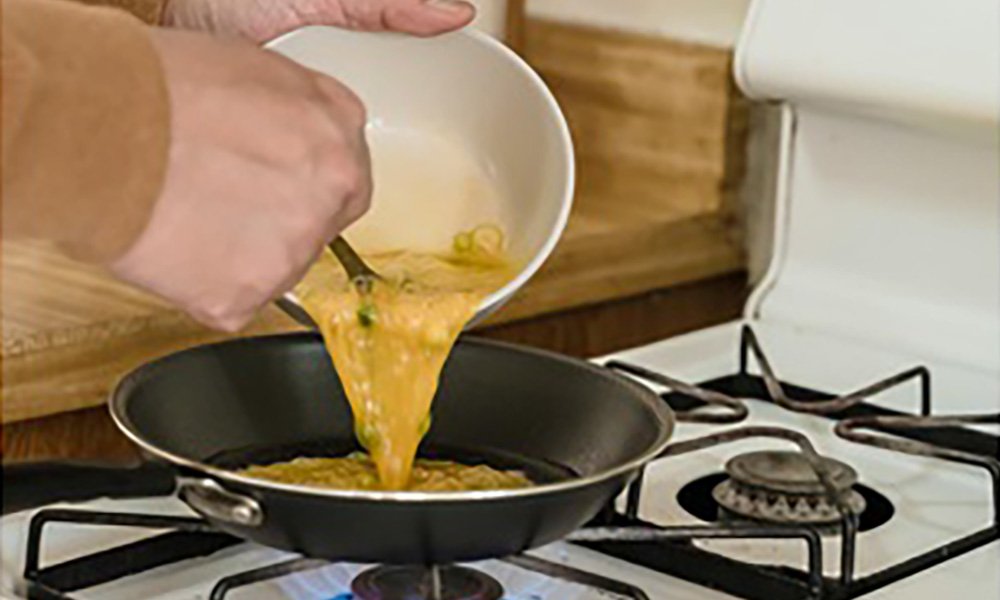When choosing cookware, two of the most common options are stainless steel and Teflon-coated cookware. Each has its advantages and drawbacks, making the decision a bit tricky. Whether you’re a home cook or a professional chef, selecting the right cookware can significantly impact your cooking experience. So, is stainless steel better than Teflon? Let’s break it down and find out!
Understanding Stainless Steel Cookware
Stainless steel cookware is widely used in both home and professional kitchens due to its durability, heat resistance, and non-reactive nature. Unlike Teflon, stainless steel does not contain synthetic coatings, making it a safer and long-lasting choice.
Advantages of Stainless Steel Cookware:
•Durable and Long-Lasting: Resistant to scratches, dents, and rust, stainless steel can last for decades with proper care.
•Chemical-Free Cooking: Unlike Teflon, stainless steel does not release toxic fumes when overheated.
•Even Heat Distribution: Many stainless steel cookware sets feature an aluminum or copper core to improve heat conductivity.
•Versatile Cooking Uses: Ideal for searing, sautéing, boiling, and making sauces.
•Oven and Dishwasher Safe: Most stainless steel cookware can withstand high oven temperatures and is dishwasher safe.
Disadvantages of Stainless Steel Cookware:
•Food Can Stick: Without proper preheating and oiling, food may stick to the surface.
•Higher Price Tag: High-quality stainless steel cookware can be more expensive than Teflon-coated alternatives.
•Requires Maintenance: Polishing and regular cleaning are needed to maintain its shine and appearance.
Understanding Teflon Cookware
Teflon is a brand name for polytetrafluoroethylene (PTFE), a non-stick coating used on cookware for easy cooking and cleaning. It has been a popular choice for decades due to its effortless usability, especially for low-fat cooking.
Advantages of Teflon Cookware:
•Non-Stick Surface: Makes cooking eggs, pancakes, and delicate foods much easier.
•Requires Less Oil: Ideal for those looking to reduce fat in their diet.
•Easy to Clean: Food doesn’t stick, making cleaning a breeze.
•Affordable: Generally more budget-friendly than stainless steel.
Disadvantages of Teflon Cookware:
•Health Concerns: When overheated above 500°F (260°C), Teflon coatings can release toxic fumes.
•Prone to Scratches: Metal utensils and abrasive cleaners can damage the non-stick coating.
•Limited Lifespan: The non-stick layer degrades over time and requires replacement.
•Not Always Oven-Safe: Many Teflon-coated pans are not suitable for high-heat oven use.
Is Stainless Steel Better Than Teflon?
The answer depends on your cooking style and priorities. If you’re looking for cookware that is durable, chemical-free, and high-performing, stainless steel is the better option. However, if convenience and easy cleaning are your top priorities, Teflon might be the way to go.
When to Choose Stainless Steel:
•If you frequently cook at high temperatures, such as searing meat or stir-frying.
•If you want cookware that lasts for decades.
•If you are concerned about exposure to chemicals.
•If you don’t mind using a bit of oil for cooking.
When to Choose Teflon:
•If you often cook delicate foods like eggs and pancakes.
•If you prefer cookware that is easy to clean.
•If you are on a tighter budget.
•If you mostly cook at low to medium heat.
Stainless Steel Beyond Cookware
Beyond the kitchen, stainless steel plays a crucial role in various industries. Handmade Stainless Steel Jewelry is gaining popularity due to its rust-resistant properties and sleek appearance. Many artisans use Tools for Stainless Steel Crafting to shape and refine metal into beautiful, handcrafted pieces. Additionally, Stainless Steel in Craftsmanship is essential in the creation of custom metal designs, making it a versatile material beyond just cookware.
Final Thoughts
While both stainless steel and Teflon have their strengths, stainless steel is the superior choice for those who prioritize longevity, safety, and performance. Teflon remains a great option for specific uses, but its limitations in heat resistance and durability make it less ideal for long-term investment. If you’re serious about cooking, investing in high-quality stainless steel cookware is a smart decision for your kitchen.
